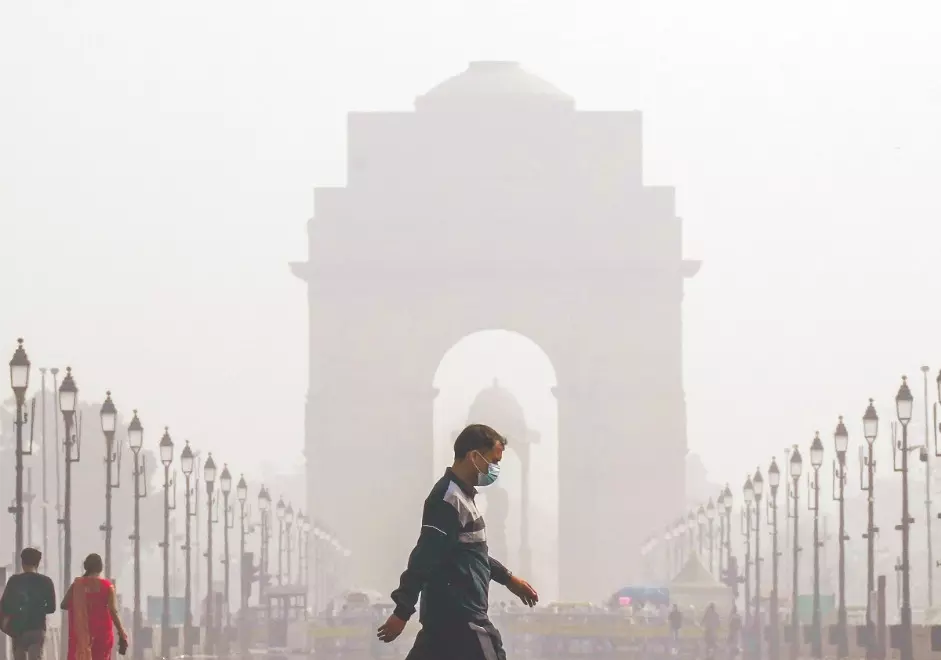
New Delhi, Sept. 17 -- The Supreme Court on Wednesday directed central and state pollution control authorities to prepare concrete measures within three weeks to curb rising air pollution, particularly in the run-up to winter when air quality deteriorates sharply across northern India.
A bench of Chief Justice of India (CJI) B R Gavai and Justice K Vinod Chandran was hearing a suo motu case concerning vacancies in the Commission for Air Quality Management (CAQM), the Central Pollution Control Board (CPCB), and various state pollution control boards. The court expressed displeasure at the delay in filling these posts, warning that the lack of manpower during peak pollution seasons worsens the crisis.
The bench ordered Uttar Pradesh, Haryana, Rajasthan and Punjab, along with the CAQM and CPCB, to complete appointments within three months. While allowing six months for promotional postings, it directed the authorities to immediately appoint personnel on deputation or contractual terms to address the upcoming spike in pollution.
At present, the shortage of staff in pollution control boards is significant. Haryana has 44 vacancies, Punjab 43, Uttar Pradesh 166, and Rajasthan 259. The court noted that such gaps undermine effective monitoring and implementation of pollution-control measures.
The CJI recalled that over the years, the court has repeatedly intervened during winter months, leading to the implementation of the Graded Response Action Plan (GRAP). This emergency mechanism outlines escalating restrictions based on worsening Air Quality Index (AQI) levels, including halting construction work, imposing vehicle bans, and curbing industrial activities.
"Stopping construction has consequences, as thousands of workers from across the country lose employment," the bench observed, also flagging issues with compensation distribution. It asked the CAQM to hold consultations with the CPCB, state governments, and their pollution control boards to devise an effective prevention strategy and submit a report by October 8.
The court also pressed the Delhi government to fill long-pending vacancies in the Delhi Pollution Control Committee (DPCC). Of the sanctioned 204 posts, only 83 have been filled. Earlier, the top court directed that all positions be completed by September. It also underlined that vacancies within the CAQM must be filled by the Centre no later than August 2025.
Alongside vacancies, the court turned its attention to the issue of stubble burning in Punjab, which remains a major contributor to seasonal air pollution in the National Capital Region (NCR). Addressing Punjab government counsel and senior advocate Rahul Mehra, the CJI asked why the state should not consider arresting habitual offenders to deter the practice.
"Farmers are special and we are eating because of them, but it does not mean we cannot protect the environment," the CJI remarked. "Why don't you think of penalty provisions? If some people are behind bars, it will send the correct message."
The bench suggested that while arrests should not become routine, punitive measures may be necessary to set an example. It also noted reports that stubble could be repurposed as biofuel, questioning why alternative uses were not being scaled up.
In response, Mehra said the Punjab government had taken several initiatives to curb the practice, claiming the number of stubble-burning incidents had dropped significantly-from 77,000 to 10,000 in recent years. He argued that arresting small farmers, many of whom cultivate barely a hectare of land, would disproportionately harm their families.
The bench asked under which law stubble burning is banned. Lawyers pointed to the Environment Protection Act (EPA), but it was clarified that criminal prosecution provisions had been withdrawn. "Why was it withdrawn? Having people behind bars will send the right message," the CJI observed.
Senior advocate and amicus curiae Aparajita Singh, however, told the court that despite subsidies, machinery, and repeated court orders since 2018, little has changed on the ground. "Farmers have even reported being advised to burn stubble when satellites are not overhead. Since 2018, extensive orders have been passed, yet the state only pleads helplessness," she submitted.
The CJI acknowledged these concerns but reiterated that punitive action, even if not widespread, might be necessary as a deterrent. "Not as a routine but to send a message," he said.
Additional Solicitor General Aishwarya Bhati, representing the regulatory bodies, sought time to file updated reports. The matter will next be heard on October 8, when the court expects the CAQM's proposed action plan.
Last year, the court had summoned the chief secretaries of Punjab and Haryana over stubble burning, underscoring the seriousness of the problem. With winter approaching once again, the bench made it clear that both staffing gaps and unchecked farm fires cannot be allowed to derail air quality management efforts in the NCR.
Published by HT Digital Content Services with permission from Millennium Post.
